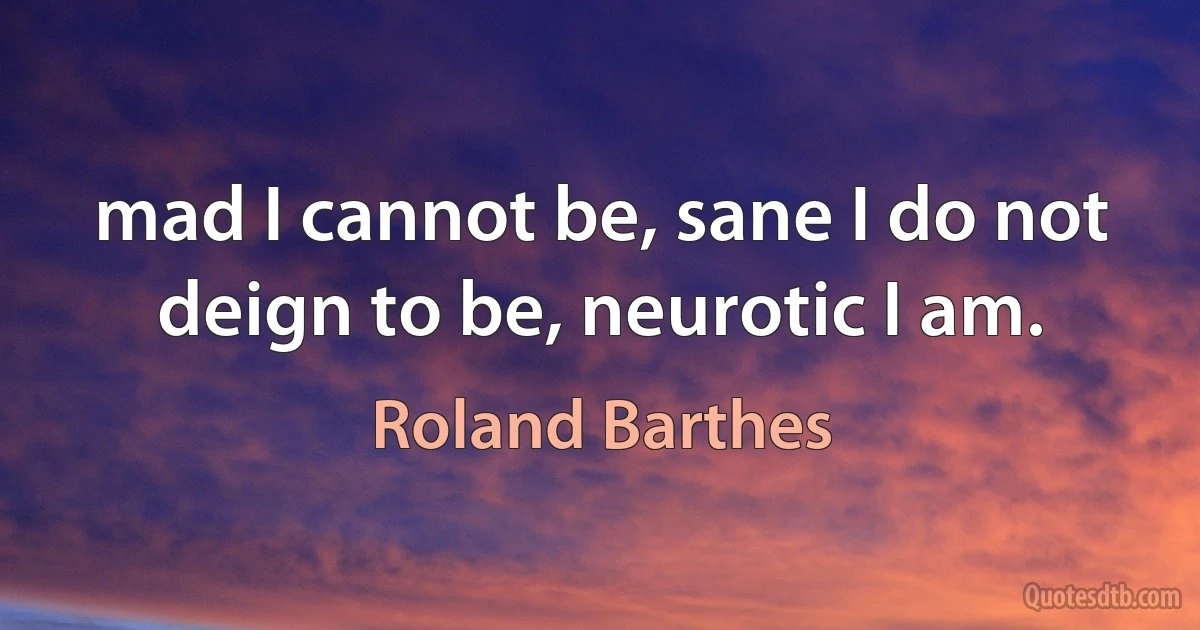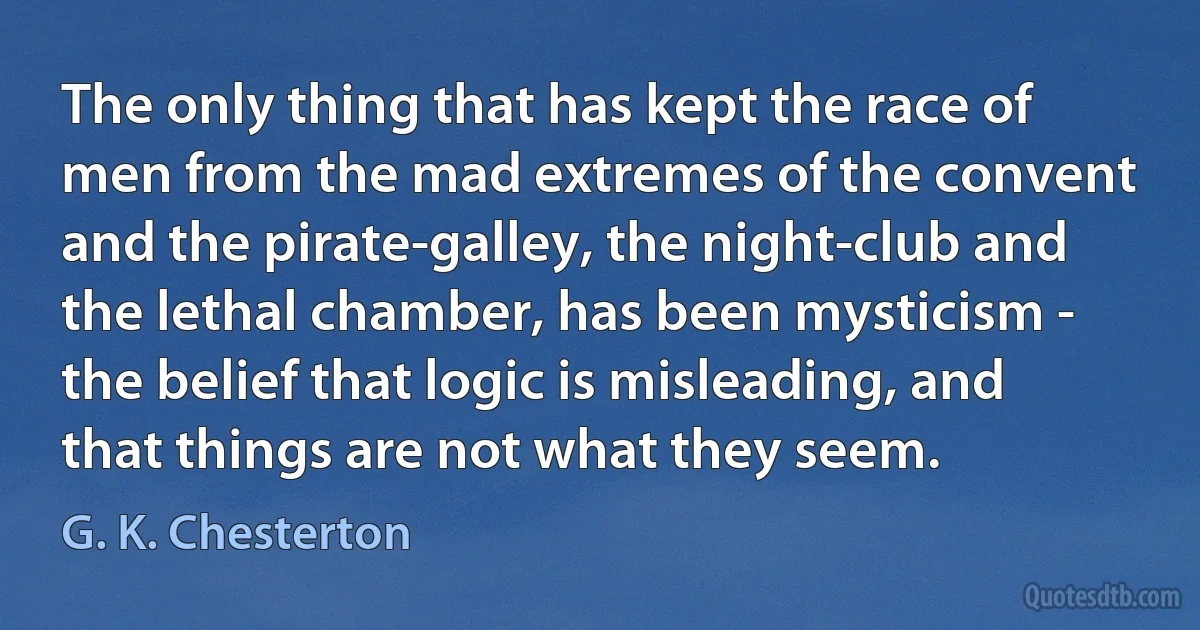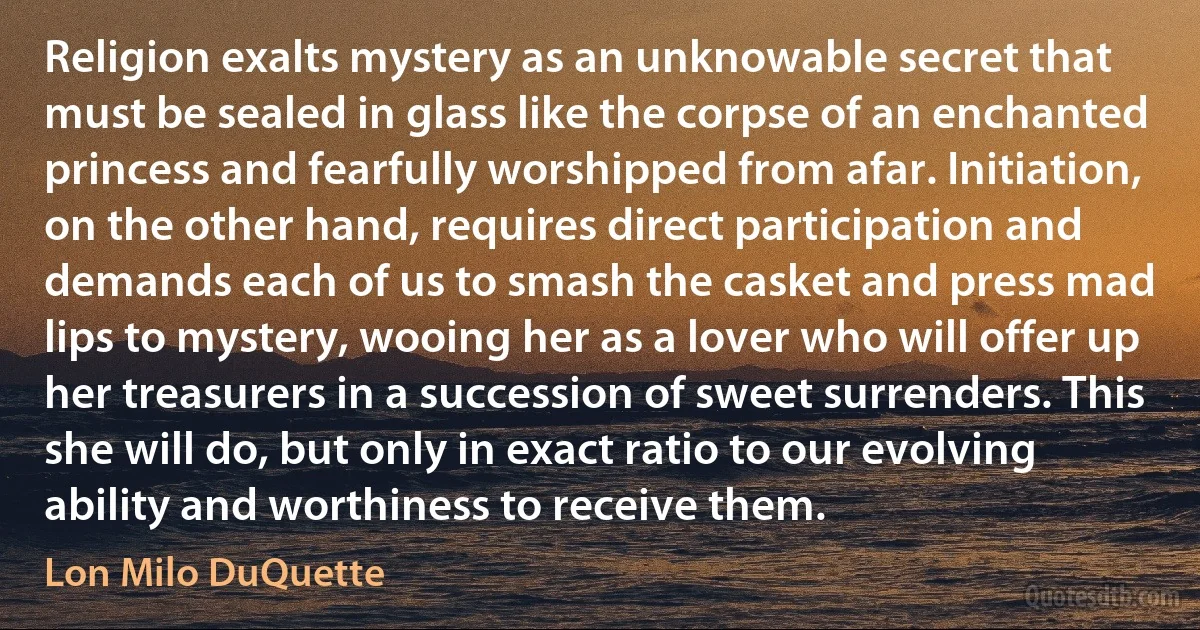Mad Quotes - page 16
Even now I cannot believe that I am still alive and writing this account of the emperor's death. I put my hands to my eyes, wondering if what I am relating here is not all a dream - or maybe it is not a dream: perhaps it is a delusion and I am mad, the victim of some extraordinary and monstrous hallucination. How comes it that when he is dead I am still numbered among the living?

Anna Comnena
Time's arrow of "just history” marks each moment of time with a distinctive brand. But we cannot, in our quest to understand history, be satisfied only with a mark to recognize each moment and a guide to order events in temporal sequence. Uniqueness is the essence of history, but we also crave some underlying generality, some principles of order transcending the distinction of moments-lest we be driven mad by Borges's vision of a new picture every two thousand pages in a book without end. We also need, in short, the immanence of time's cycle.

Stephen Jay Gould
The riddle of life is simply this. For some mad reason in this mad world of ours, the things which men differ about most are exactly the things about which they must be got to agree. Men can agree on the fact that the earth goes round the sun. But then it does not matter a dump whether the earth goes around the sun or the Pleiades. But men cannot agree about morals: sex, property, individual rights, fixity and contracts, patriotism, suicide, public habits of health – these are exactly the things that men tend to fight about. And these are exactly the things that must be settled somehow on strict principles. Study each of them, and you will find each of them works back certainly to a philosophy, probably to a religion.

G. K. Chesterton
For a thousand years, the Bible was almost the only book people read, if they could read at all. The stories that were officially told and portrayed were Biblical and religious stories. That other fount of Western civilization as we know it today - the Greek classics - went largely unknown until the Renaissance. For our purposes, there's a noteworthy difference between these two literatures: in the Bible people are hardly ever said to be mad as such, whereas in Greek drama they go off their rockers with alarming frequency. It was the rediscovery of the classics that stimulated the long procession of literary madpeople of the past four hundred years.

Margaret Atwood
What Elizabethan playwrights learned from the Greek classics was not theories of insanity, but dramatic practice - that is, madness is a dandy theatrical element. It focuses the audience's attention and increases suspense, since you never know what a mad person may get up to next; and Shakespeare himself makes use of it in many forms. In King Lear, there's a scene in which one man pretending to be mad, another who has really gone mad, and a third who has probably always been a little addled, are brought together for purposes of comparison, irony, pathos, and tour de force acting. In Hamlet, there are two variations - Hamlet himself, who assumes madness, and Ophelia, who really does go winsomely bonkers. In MacBeth, it's Lady MacBeth who snaps.

Margaret Atwood
It is simply the truth which has come to our aid. It is truth which has given us life. Affection is the greatest of human feelings because it is made of respect, of lucidity, and light. To understand the truth and make one's self equal to it is everything; and to love is the same thing as to know and to understand. Affection, which I call also compassion, because I see no difference between them, dominates everything by reason of its clear sight. It is a sentiment as immense as if it were mad, and yet it is wise, and of human things it is the only perfect one. There is no great sentiment which is not completely held on the arms of compassion.

Henri Barbusse
And the conversion of the other Don Quixote - he who was converted only to die - was possible because he was mad, and it was his madness, and not his death or his conversion that immortalized him, earning him forgiveness for this crime of having been born. Felix culpa! And neither was his madness cured, but only transformed. His death was his last knightly adventure; in dying he stormed heaven, which suffereth violence.

Miguel de Unamuno
All military governments are going to be targets from now on for every sort of Jewish and Communistic attack from the press.
My self esteem would be better had I simply asked for immediate retirement but then any thing I said in the future could be attributed to revenge...
At the moment I feel pretty mad.

George S. Patton
In a world that's gone hellishly mad we've always taken comfort in the fact that the faith of our fathers is the one thing that remains solid and unchanging. It occurs to very few of us that perhaps for the last 2,500 years the faith of our fathers has been one of the main reasons why our world has gone hellishly mad.

Lon Milo DuQuette
If their princes exceed their bounds, Madam, no doubt they may be resisted, even by power. For there is neither greater honor, nor greater obedience, to be given to kings or princes, than God hath commanded to be given unto father and mother. But the father may be stricken with a frenzy, in which he would slay his children. If the children arise, join themselves together, apprehend the father, take the sword from him, bind his hands, and keep him in prison till his frenzy be overpast: think ye, Madam, that the children do any wrong? It is even so, Madam, with princes that would murder the children of God that are subjects unto them. Their blind zeal is nothing but a very mad frenzy, and therefore, to take the sword from them, to bind their hands, and to cast them into prison, till they be brought to a more sober mind, is no disobedience against princes, but just obedience, because it agreeth with the will of God.

John Knox



